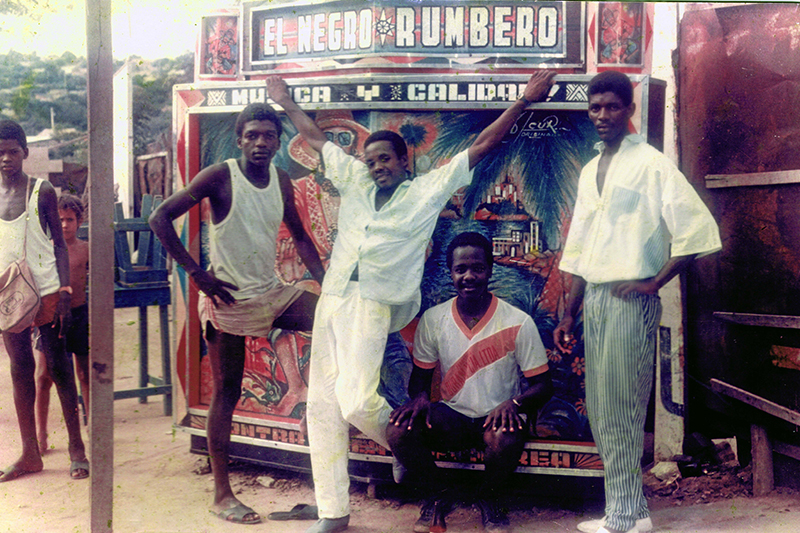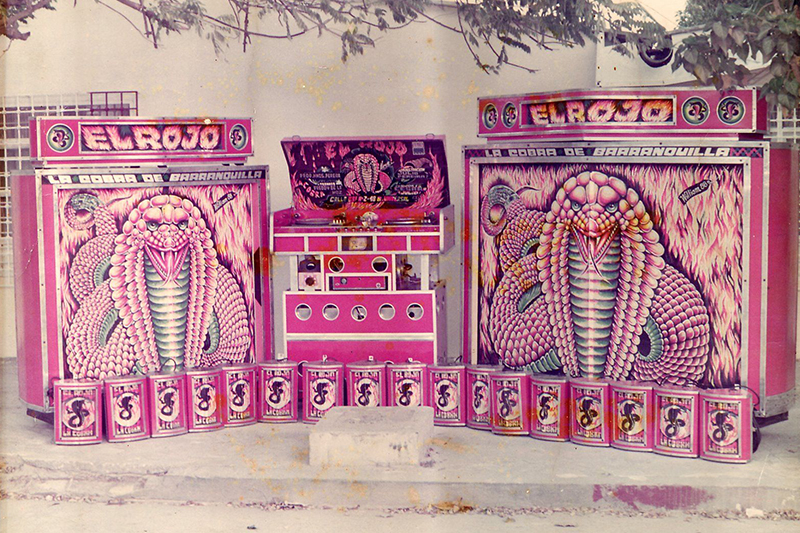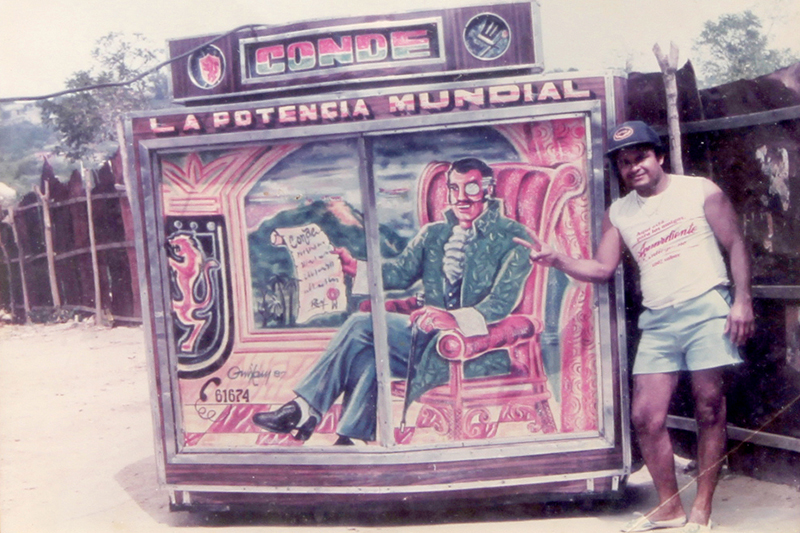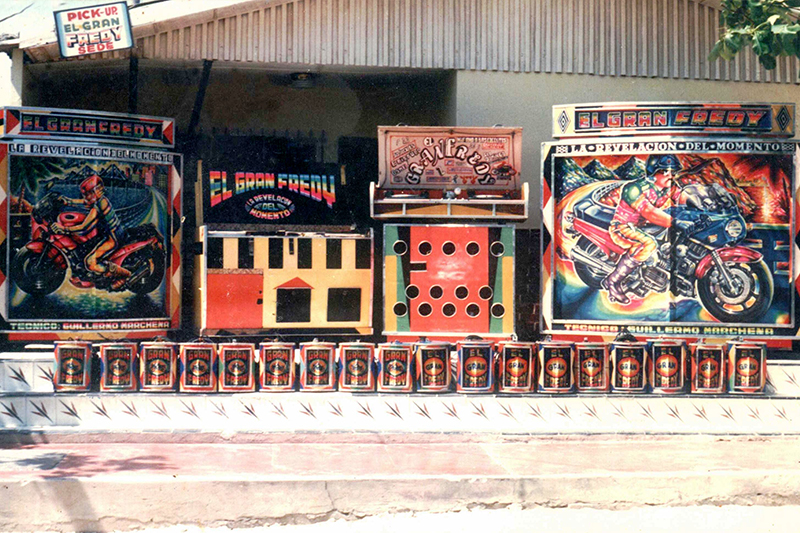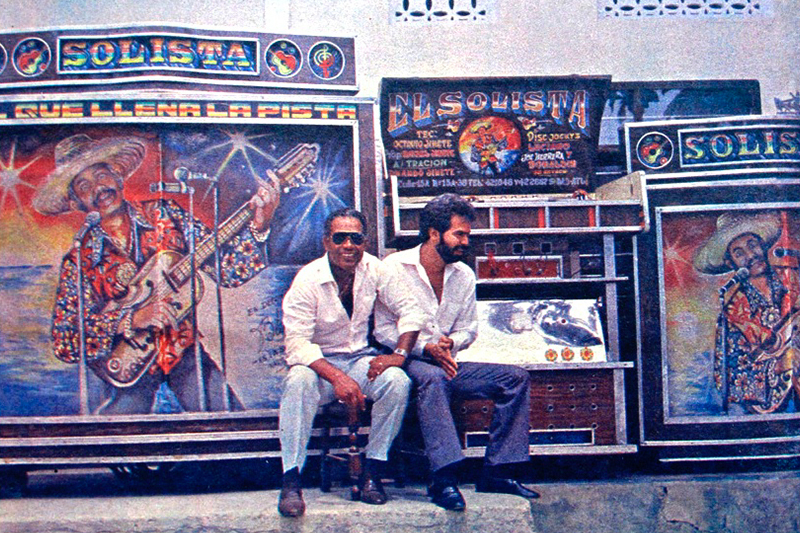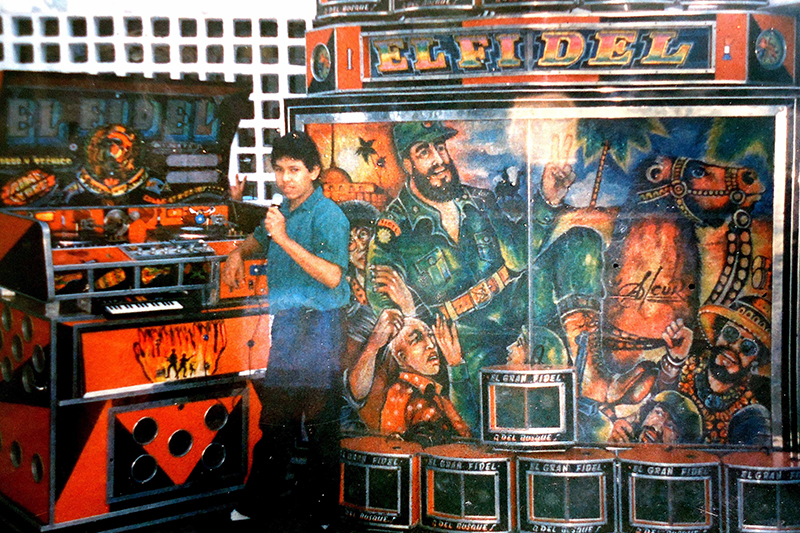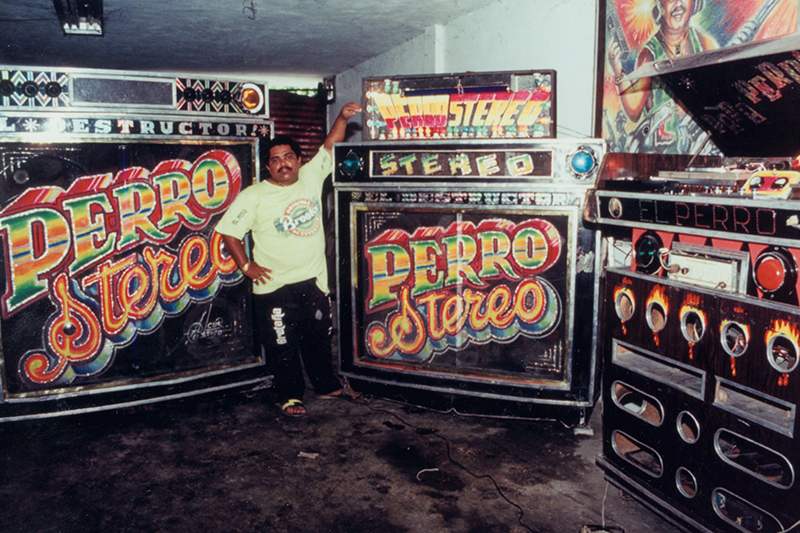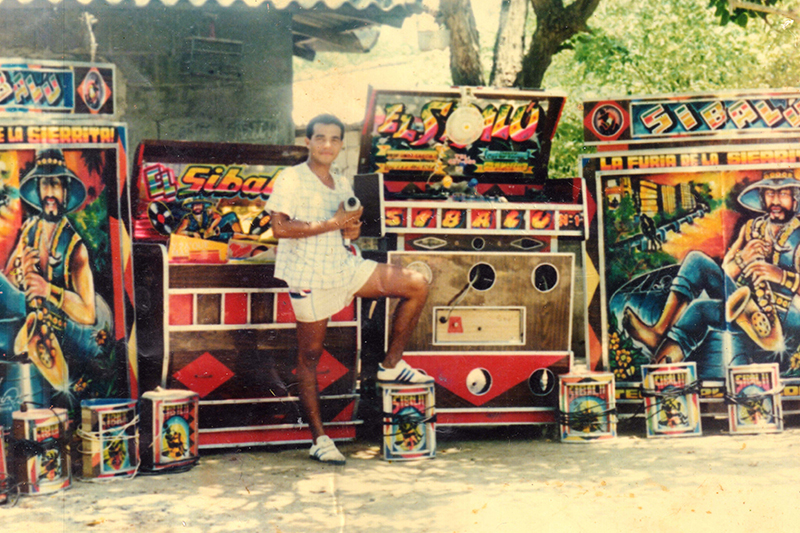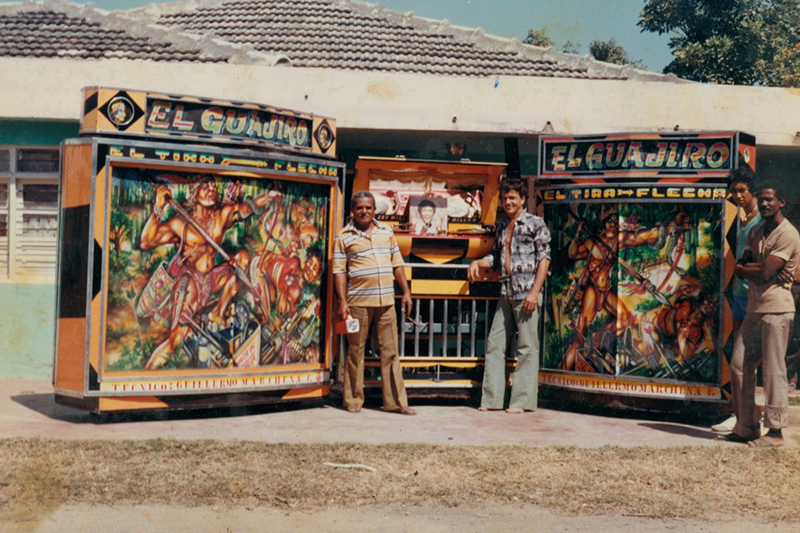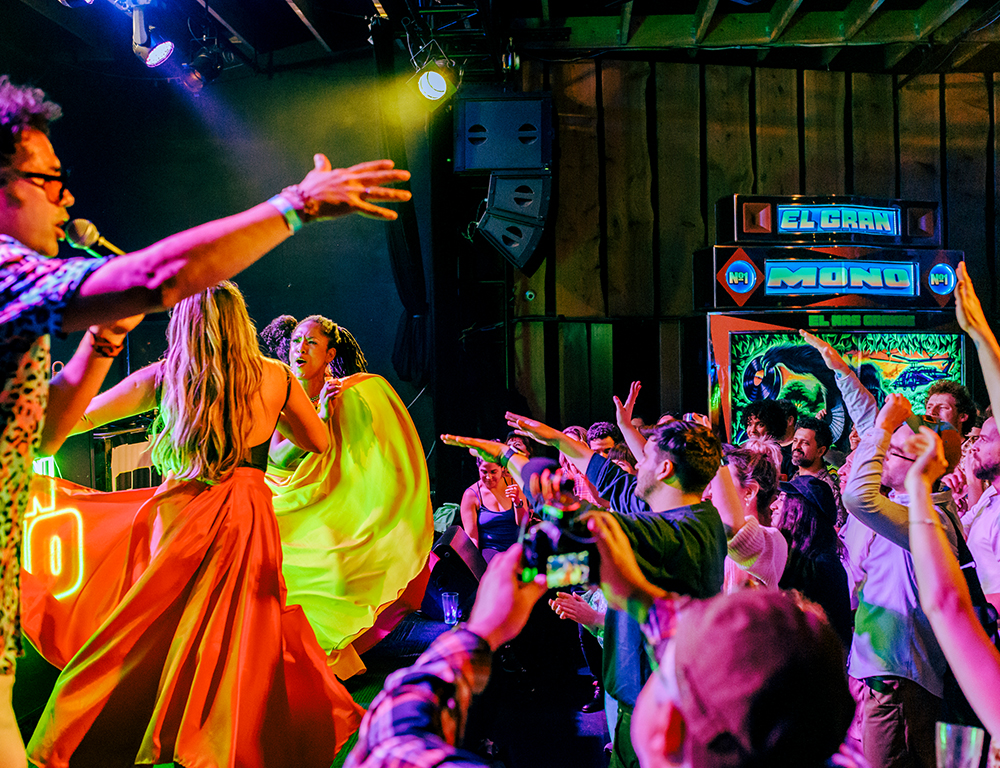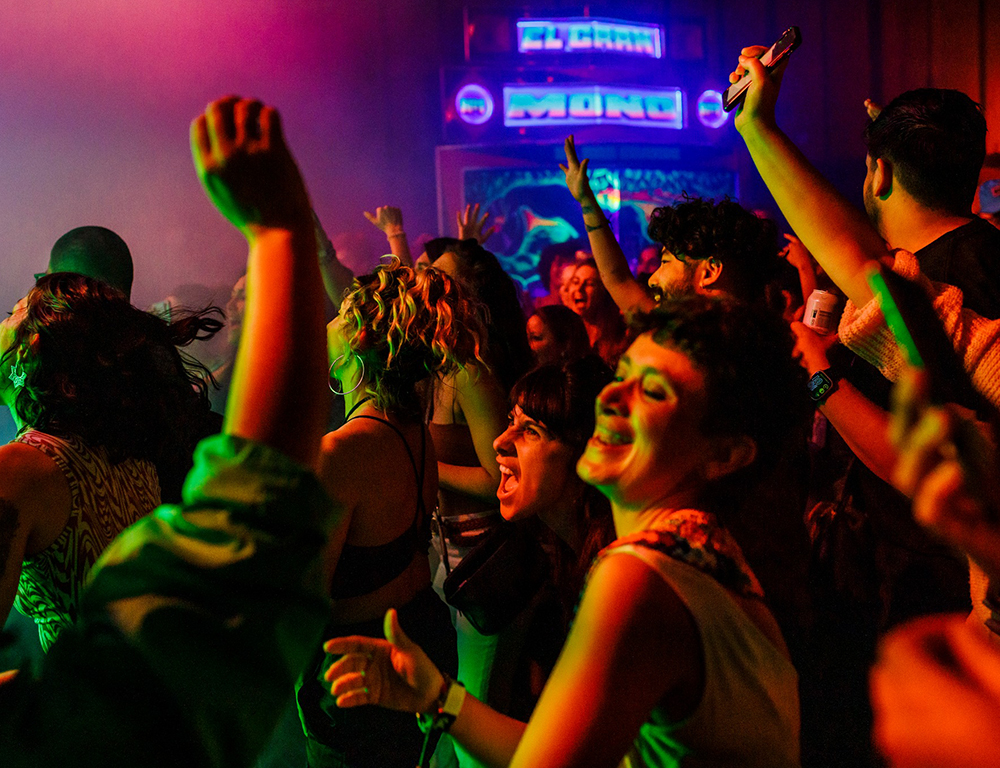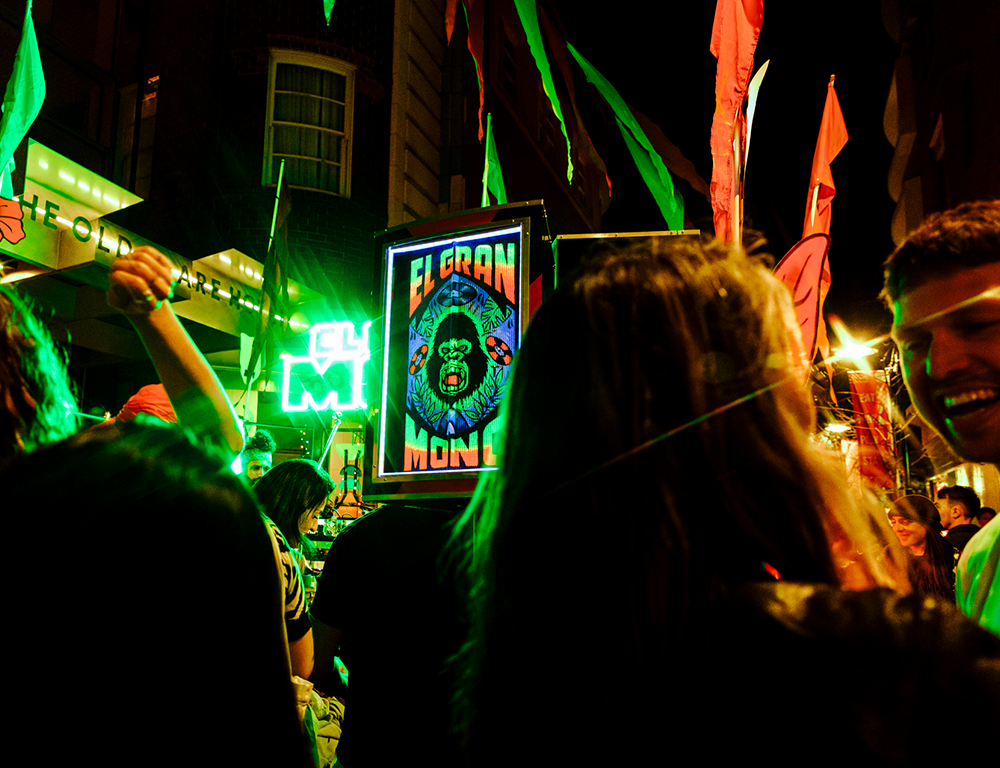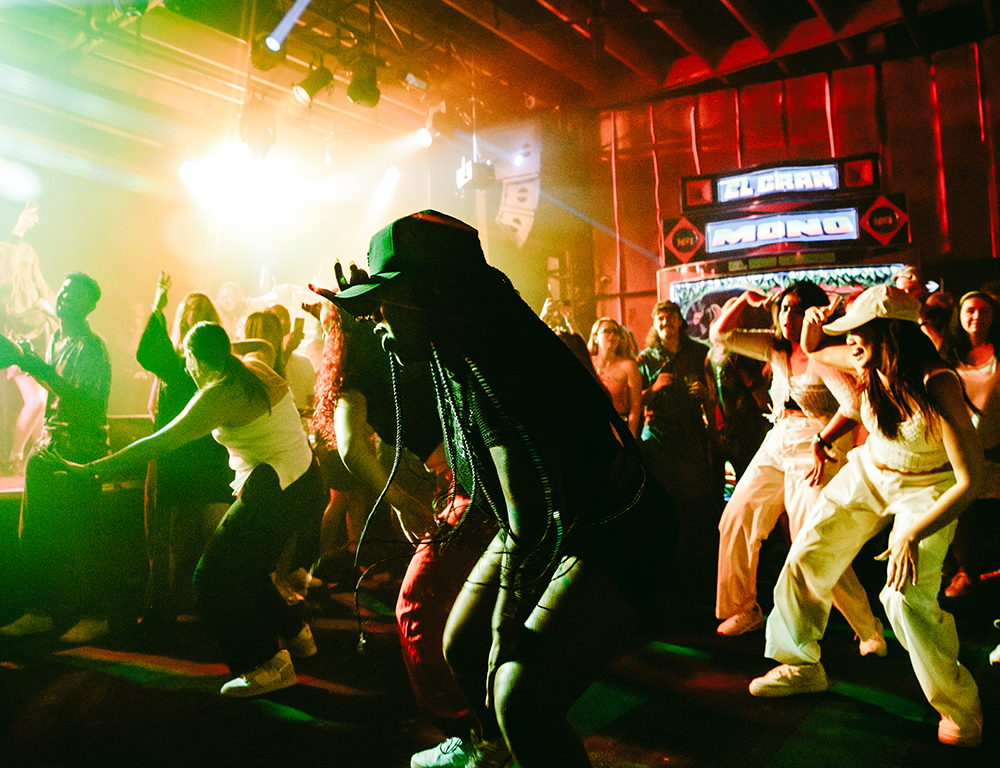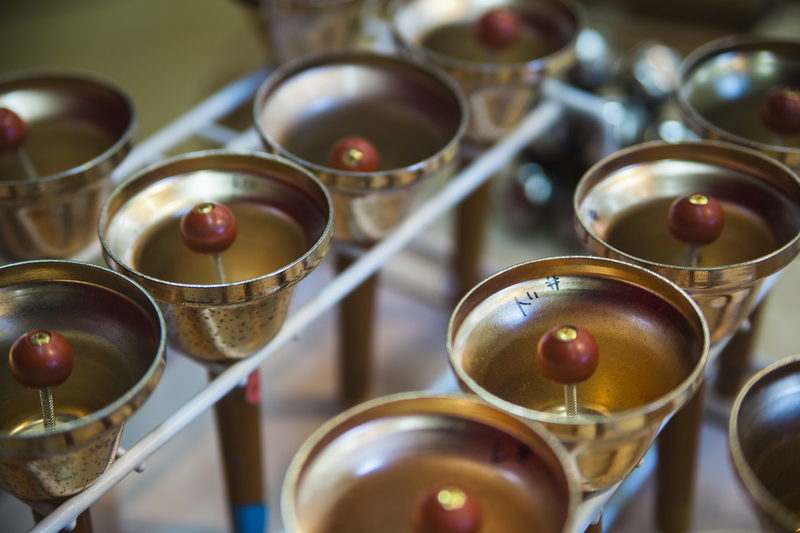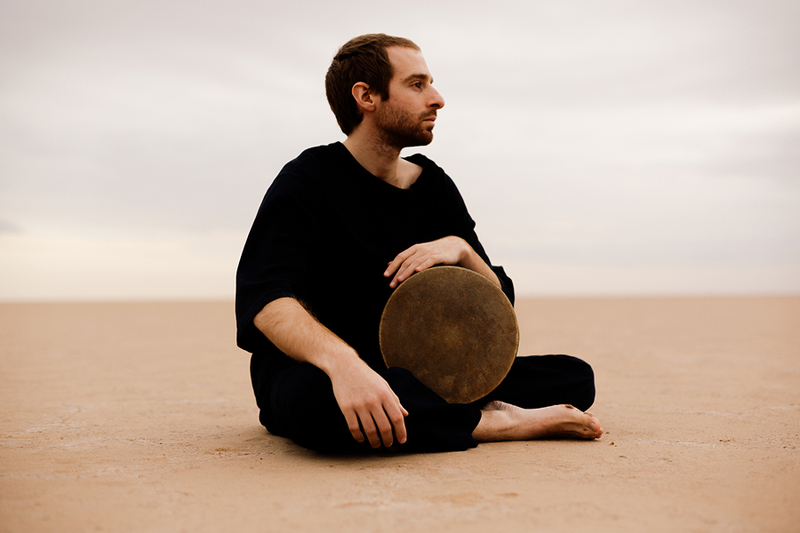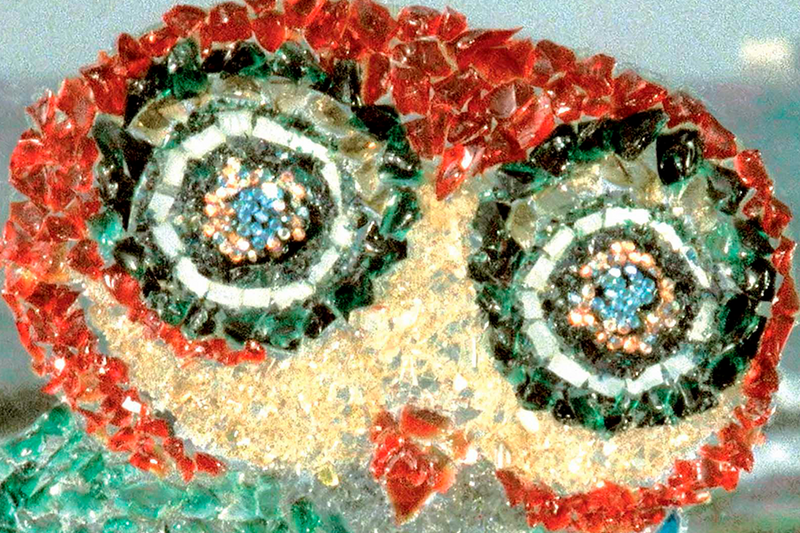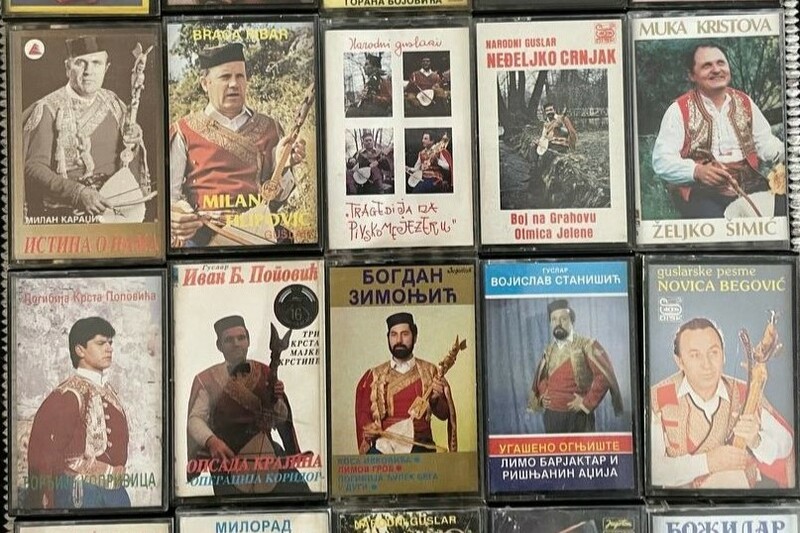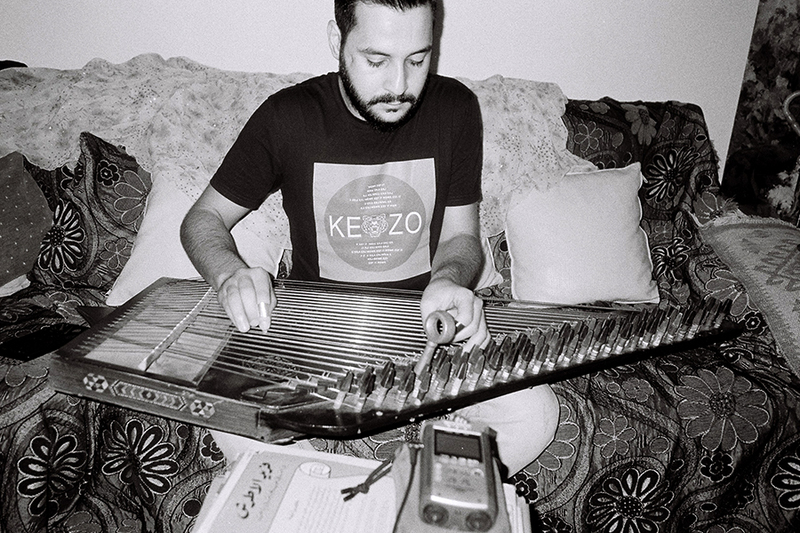
The Picó sound system culture originated on the Caribbean coast of Colombia in the 1960s. These massive sound systems played a major role in the public and party life of the region. El Gran Mono is the first authentic picó to be built outside of Colombia. As part of EastEast’s collaboration with the Sydney Biennale, we spoke with its creators about how technology may create new forms of collectivity, how they adapt Colombian picó culture to the Australian context, and what music best suits these bespoke speaker systems.
Vinyl records imported by merchant seaman arriving at Barranquilla’s “golden port” fuelled an insatiable desire for rhumba, soukous, benga, and other African styles of music which melded together with local rhythms to create a truly diverse musical landscape. Picó systems, unique in their individual names and emblazoned with customized artwork, took to this environment to develop their own styles of entertainment. Some picó would be known for their heavyweight salsa selections, but most preferred African or Afro-Caribbean styles, all vying for the reputation of a powerful sound system with the most exclusive records to draw in crowds.
What took place on that trip was absolutely awe inspiring, with Fabian graciously introducing me to many of the picó owners and other influential people in the culture, along with guiding me through dozens and dozens of picó parties.
In 2015 my friend Johnny visited Barranquilla, connecting again with Fabian and immersing himself in the picó culture. Fabian’s passion was infectious, as he was driven to internationalize the picó sound system and shine a light on such an incredible cultural strength of Colombia.
Working together under Fabian’s guidance and our own research on those trips to Colombia, together with Johnny we began to hatch a plan to build El Gran Mono. The purpose was three-fold; we wanted to create a vibrant sound system that would engage crowds in Australia, that it would be a large picó that Colombians would be proud of, and ultimately that we’d help Fabian in his goal by playing an active part in internationalizing the culture.

It’s important to point out though that El Gran Mono was never meant to be a replica of the Colombian tradition, but to pay homage to the great Golden-Era picó systems. So while the name on one hand literally translates to “The Great Ape,” “mono” is also Colombian slang for someone who is blonde or a foreigner.
In adapting Colombian picó culture to the Australian context, we approach the process with deep respect and transparency. We aim to preserve the essence of the picó communal music experience while at the same time ensure it resonates with Melbourne's diverse audience. This involves curating events that blend Colombian, Afro-Caribbean, and African elements together with local flavors, creating an engaging and dynamic melting pot that brings people together. This celebration of diversity we hope creates a positive cultural narrative, and a dialogue which promotes unity through the universal language of music.
El Gran Mono parties are similar to events in Colombia in that they are programmed around a series of picótero or DJs selecting tropical music, however we also try to have MCs to engage the crowds, and dancers to bring extra flavor to the performances.
So while the name on one hand literally translates to “The Great Ape,” “mono” is also Colombian slang for someone who is blonde or a foreigner.
One of my favorite events was Heavy Congress, which brought together 10 other sound systems for the largest ever gathering of its kind in Australia. Held in Melbourne’s iconic 1920’s built Forum Theatre, it was a chance to give the crowd a taste of a picó party amongst systems playing reggae, drum’n’bass, and other styles. We’ve got such a great community around El Gran Mono, and collaborating on this show with MC Kaiman Jimenez and DJ Kobra 3000, along with dance crew Selva y Tambó was really the start of us finding our path. And the packed venue just ate it up.

photograph by Francesco Vicenzi
Thanks to opportunity provided by El Gran Mono, the idea was to not only establish a diverse community here in Australia around Picó culture, but also reflect back our vision via our own influences parallel to Champeta and Terapia pioneers such as Wganda Kenya, Rafael Chavez, and countless numbers of picó operators along the Caribbean coast.
After a year of meticulous curation, our four track EP The Wild Ones has gone into pre-sale on Bandcamp with the lead single "Joselito" on June 21st. We envision the work as a new wave of Caribbean Champeta sound, utilizing iconic 80’s synthesis and drum machines, fusing cult Colombian Carnaval rhythms and folkloric Colombian instrumentation for a world more “carnivalesque.”
